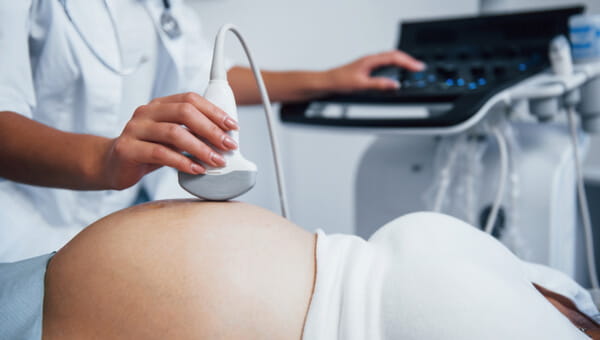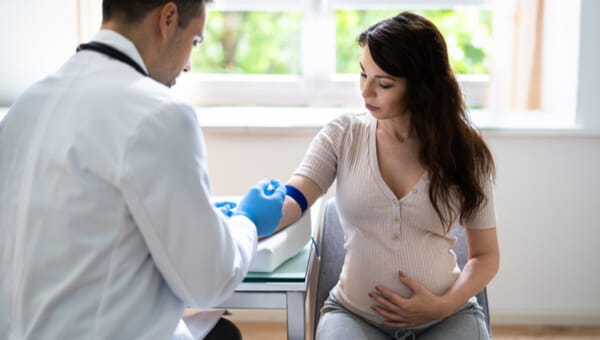Pregnancy is an exciting time, but it also comes with lots of questions and worries. You might be wondering what kinds of tests are in store for you and your baby. Here are some of the most common screenings.
Ultrasound
You can expect to have at least one ultrasound exam, which is usually done at around 18 weeks or so. This allows your health care team to take a look at:
- Baby’s length and weight
- Baby’s breathing and heart rate
- Baby’s position and movement
- Whether there might be more than one baby
- The amount of amniotic fluid
- The placenta
- (Possibly) baby’s gender!
In some cases, you might need an ultrasound in the first trimester if you aren’t sure how far along you are, or if your doctor suspects one of the following:
- More than one baby
- Ectopic pregnancy
- Certain genetic disorders
Glucose screening
Around 24 weeks or so, you’ll need to drink a super-sweet liquid, after which a blood sample will be taken to test the sugar level. If your blood sugar is high, then you’ll likely need to do a longer screening test to see if you have gestational diabetes.
Group B streptococcus (GBS) test
Toward the end of your pregnancy, your health care provider will swab the outside of your vagina and rectum to test for GBS, a type of bacteria that could harm your baby. If you test positive, you’ll need to receive IV antibiotics during labor and delivery to protect your child.
HIV test
Regardless of risk factors (or lack thereof), every pregnant mother should be tested for human immunodeficiency virus (HIV). Knowing your HIV status early in your pregnancy can help your OB team decide the best way to protect your baby.
Nonstress test
This is a simple test that monitors your baby’s movement and heartrate using an electronic monitor strapped to your belly.
Other screenings
Depending on your age, health, family history and other factors, your doctor could recommend further testing, such as blood tests, genetic tests or stress tests.




